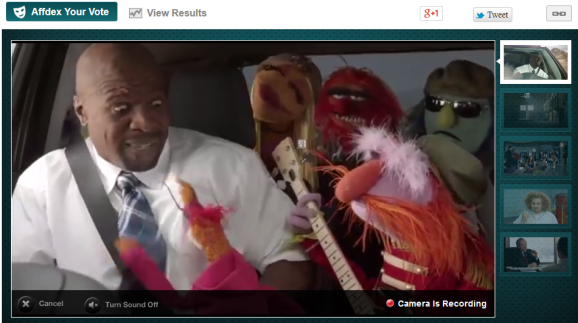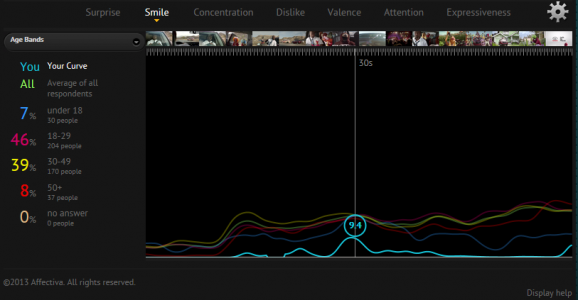Smartphone Apps Can Tell How You’re Feeling—And Use It For Marketing
This article is more than 2 years old
 We all know of or use high-tech smartphone apps, whether they’re for help at the gym, for medical use in remote areas, or for helping keep bikes safe. Now, there’s an app that can tell how we’re feeling by using “emotion-tracking” technology.
We all know of or use high-tech smartphone apps, whether they’re for help at the gym, for medical use in remote areas, or for helping keep bikes safe. Now, there’s an app that can tell how we’re feeling by using “emotion-tracking” technology.
Tracking emotions involves using the phone’s camera, and then analyzing the facial expressions of users. Researchers at MIT’s Media Lab launched a start-up called Affectiva a couple years ago, and the company recently released Affdex, which “reads facial expressions to measure the emotional connection people have with advertising, brands and media.” Those who are curious can try the demo on the website, in which users watch ads while their webcams analyze their faces to gauge how much the user connected with the ad and how that connection compares with others’ reactions. I tried a few, but ended up feeling a little emotionally manipulated — of course I “connected” to the Toyota ad featuring the Muppets rocking out. How could I not? The results of my expressions are on target — I was less than enthused with the ad when it was just a man driving a car, but more Muppets produced more smiles.

Similar to the GIFGIF project, which measures people’s emotional responses to GIFs, Affdex will harness its power to leverage non-verbal communication. Affectiva’s CEO says its main goal is to be the “emotion data layer” between people and their gadgets and apps. There are some useful applications for such technology — as a teacher, it’s not hard to imagine apps like this measuring students’ engagement (or lack thereof), but Affdex’s main and most obvious use is for marketing and advertisement. While it’s inevitable, it’s hard not to find that offputting. I don’t need or want my apps to make me easier to manipulate as a consumer. But Affectiva’s potential benefits in education and healthcare are tough to ignore.
Another potentially troubling aspect of the app is privacy. After I took the demo I was asked whether I wanted to share my expressions on the site, and I declined (my Muppet face is my own!). But what if I use the app in class, and capture expressions from 40 students? Affectiva is trying to address this by incorporating a permission clause into its contracts, threatening to cut off those who don’t get permission of others before emotion tracking. Once the app gets tailored for Google Glass, that might be difficult.












